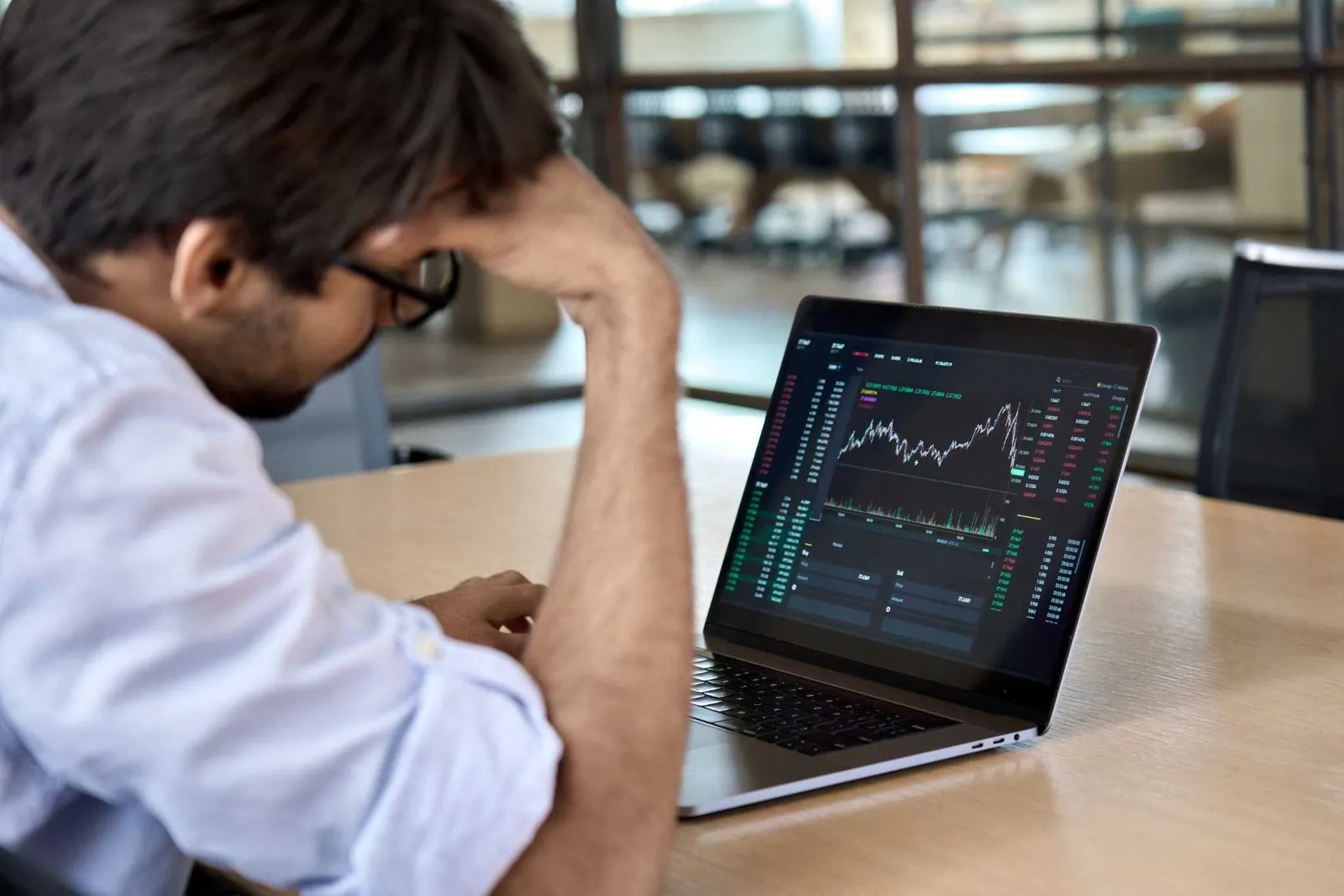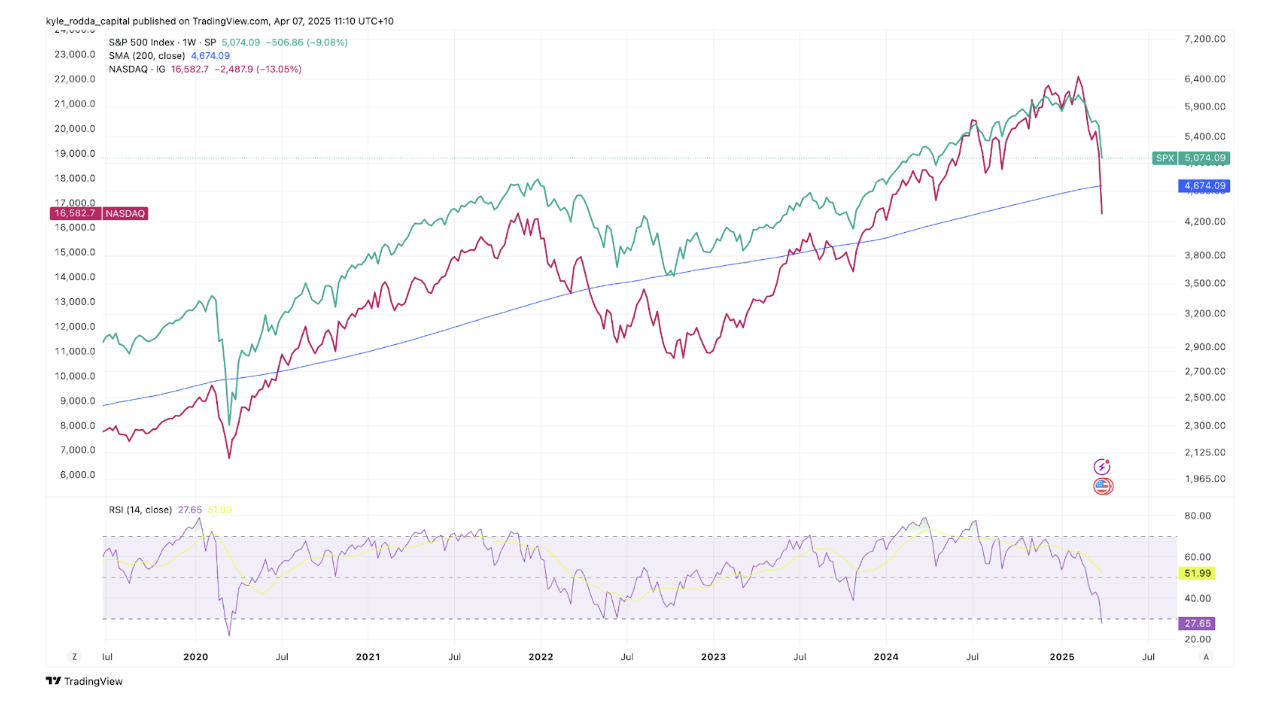Panic grips the markets as a global trade war risks plunging the world into recession
Markets tumble amid fears of a global recession triggered by escalating US-China trade tensions.
There were signs of panic in the markets at the Asian open after another plunge on Wall Street. US futures plummeted 5%. Oil also tumbled, made worse by a Saudi price cut to Asian trading partners, while copper prices collapsed as the market priced-in weaker global growth. Currency markets whipped about, with AUD/USD hitting its lowest level since the COVID crash. Gold is selling off which is a concern - it signals a “liquidate everything” attitude. Crypto is looking wobbly for the first time in a few weeks. The move may be compounded by the thin liquidity you'd expect to see on a Monday morning in Asian trade. However, at face value, it's starting to look like crisis mode and a market pricing in a significant growth shock and recession in the US, possibly across the globe.
We saw the first tat to the US’s tit in US trade, with China announcing retaliatory tariffs on the United States – something the US has threatened would only invite even higher tariffs. The firing gun for the race to the bottom on global trade has fired and market participants are hoping that it will be a false start and the whole event will eventually be called off. However, with the Trump administration seemingly committed to seriously shaking up the global trading order and structure of the US economy, the volatility and weakness in economic activity will last as long as it is willing to stick to this trade policy – or at least, engage in negotiations to water it down.

(Source: Trading View)
(Past performance is not a reliable indicator of future results)
Anyone hoping for reassurances from the monetary policy arm of economic management were left disappointed on Friday. A speech delivered by Fed Chair Jerome Powell contained few (tacit or otherwise) messages that the central bank is preparing to cut rates sooner on the prospect of a big growth shock from tariffs. Instead, Chair Powell emphasised the inflationary risks that could come from cutting rates into a supply shock. The experienced and politically savvy Powell could be keeping aloof and taking a FAFO approach to the US President, who called out the Fed Chair on social media and implored the central should start cutting rates, who could himself end the mayhem by revising trade policy.